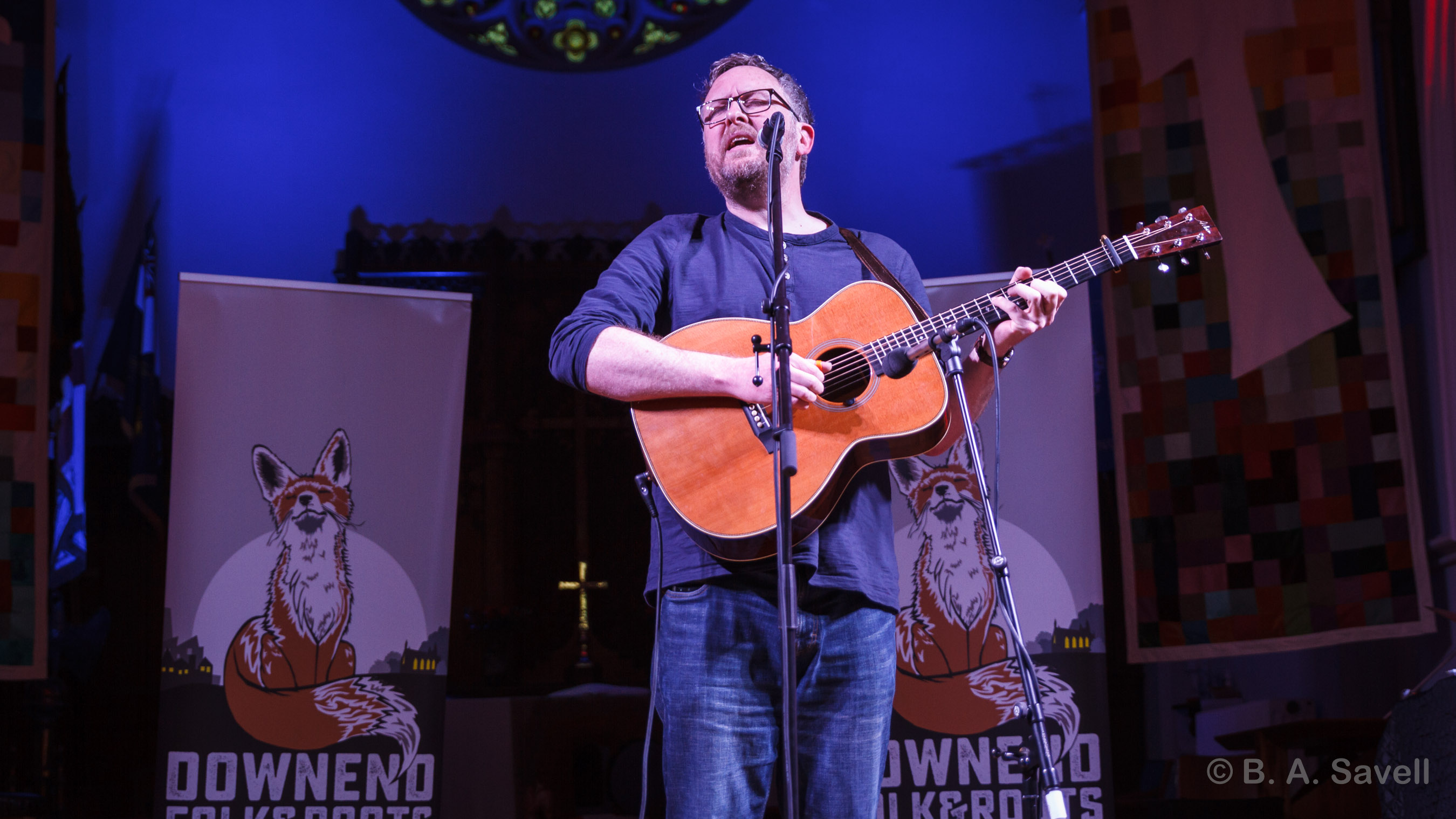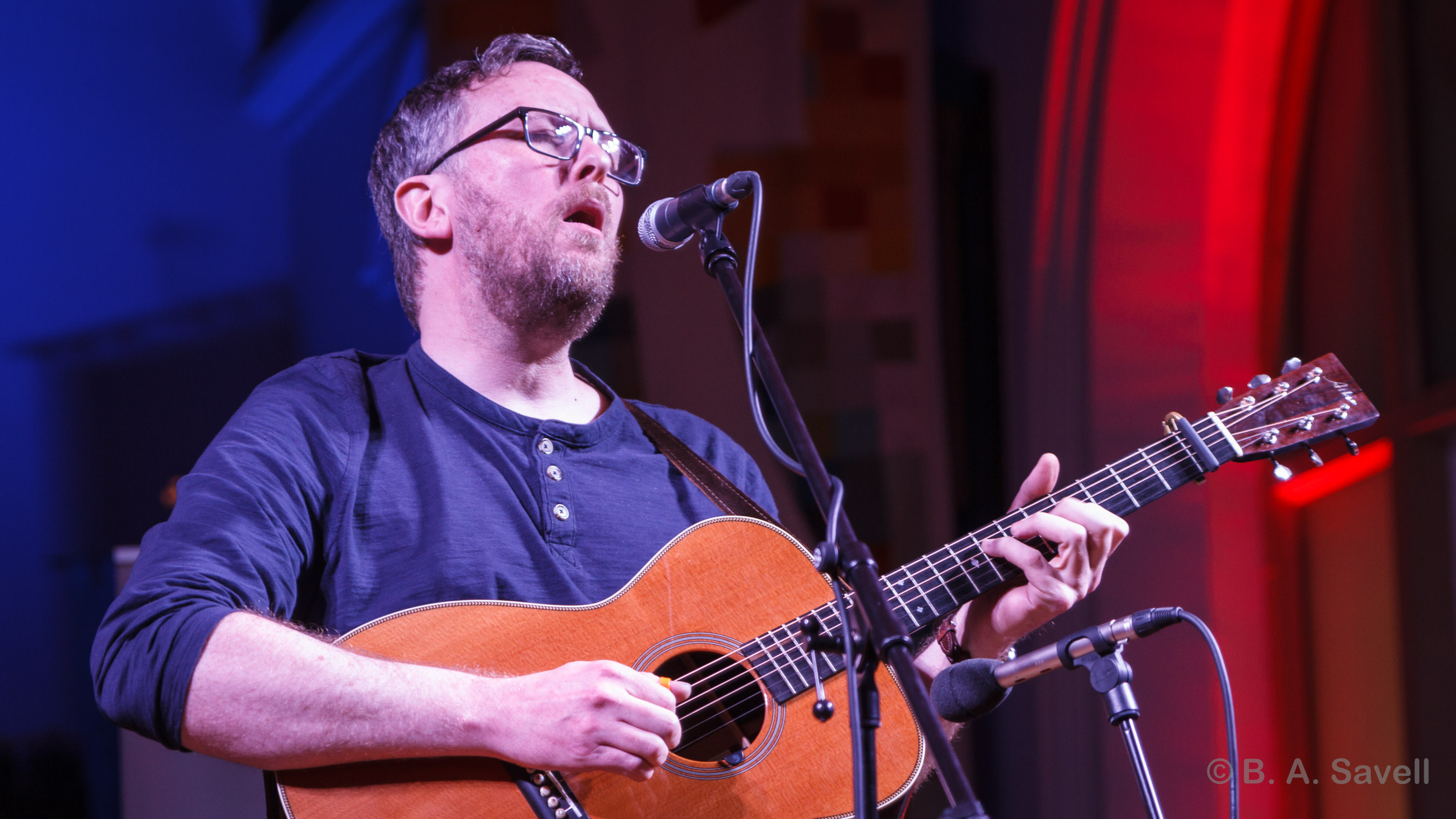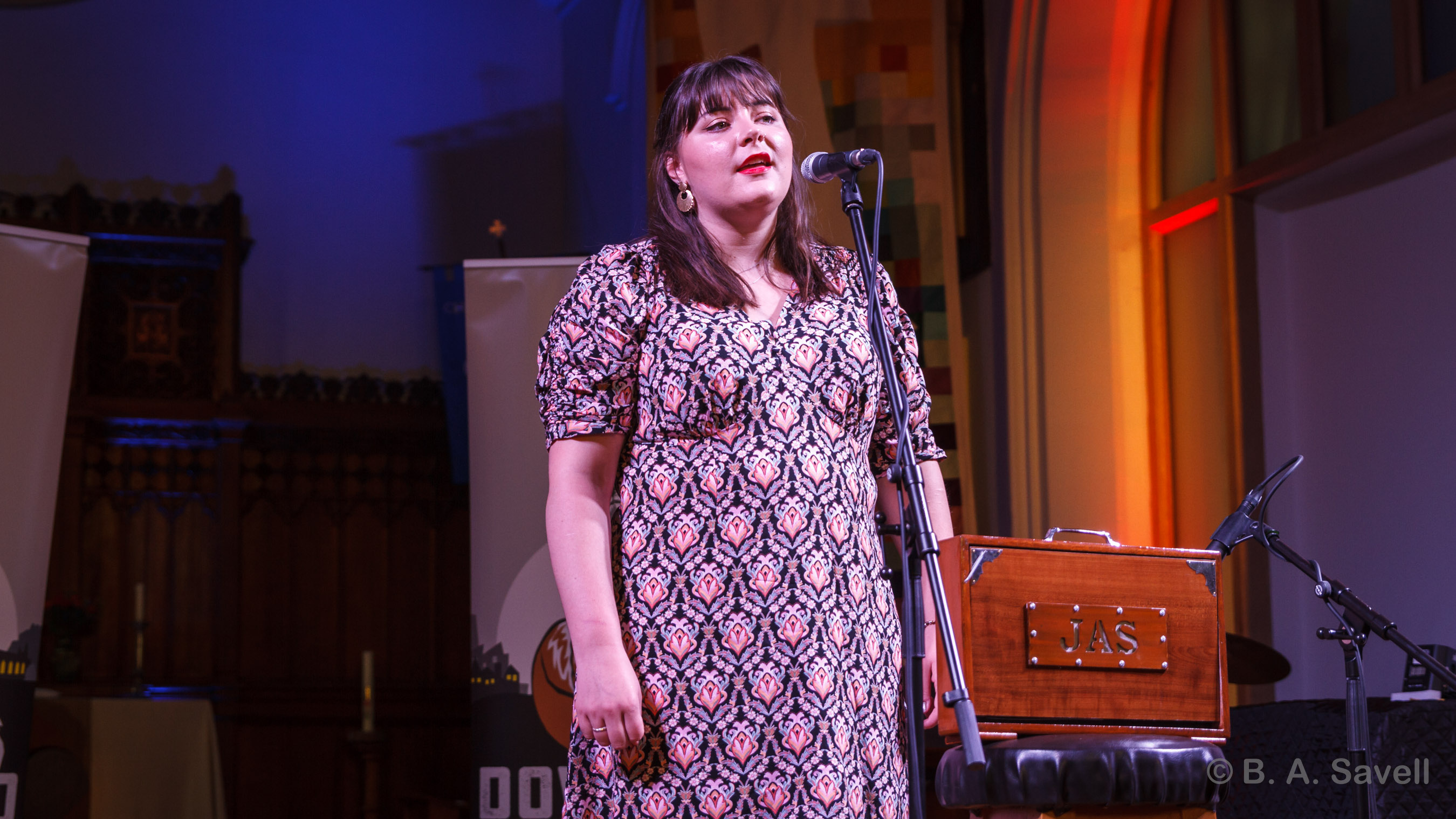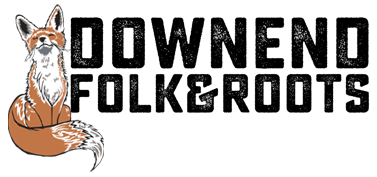There's something so wonderful about listening to someone who just knows stuff. Just hanging out while they spin stories, digress, mine fact-y nuggets. While they find truths in the everyday and fashion magic from mere words. It's just the greatest thing.
JON WILKS knows stuff and hanging out with him brings you more stories than you can count, more stuff than you could ever imagine.
He is a polymath; a singer of traditional songs, a songwriter, a lyrical guitarist, a podcast host (THE OLD SONGS PODCAST), the curator of a fine and folk-y website (TRADFOLK). He's a master of digression and an opener of worlds.

Again and again, he tells us a story before singing a song. One is about a pub, The Fox in Birmingham. He tells us where it would have been (on the site of a Primark, naturally) and who drank there. He tells us of street hawkers, of ballad sellers, of Broadsides and the reasons they were written. He does it with love, wonder and a sense of fun. He brings the whole scene to life. And then he sings the song - The Boatswain - and adds further layers. It's an old, old song, it's a little bit rude (Cecil Sharp described it as "putrid") and packed full of characters. Each slightly more despicable than the last but each as real as you or I.
Characters are the currency that Wilks deals in. Whether they are murderous wives, cheating tailors, thoughtful down-and-outs or strolling dandies, his songs are a parade of real life. A flickering cine film of black and white lives, painstakingly hand coloured to bring out every striking detail. Pretty Girls of Brummagem is rich in humanity and Wilks clearly finds the people he's singing about as fascinating as we do.

Many of the songs sung were collected hundreds of years ago - he describes them as "authorless songs" - and Wilks is a wonderful interpreter of these corners of the folk canon. His voice is strong and honest, the odd flattened vowel peeking through reminding you of his Midlands upbringing. The Fowler is a song, he tells us, that shares its root origin with Swan Lake. It's a song that tells the age-old tale of a man who mistakes his girlfriend for a swan and shoots her. Of course. Johnny Sands is taken from a book called The Funniest Songs in the World and is, in fact, a nasty little thing about a tired marriage. Wilks delivers it unaccompanied and holds the audience in amused raptures.
For all of the ancient characters, the Broadsides and the old, Midlands-centric songs it is when Wilks sings his own songs that you cherish his company. Greek Street, taken from his brilliant new album Before I Knew What Had Begun I Had Already Lost, is wide-eyed with the transience of love during a teenage summer. It's awash with the romanticism of a Soho sunrise after a debauched night out and is, very simply, a great London song. Tape Machine is equally gorgeous. A song of love and luck, of surreptitious recordings and the joy of a new city early in the morning. It's warm, affectionate and very beautiful. Durham Fayre, another of his own, unfurls the lives of real people, hard work and honest lives. In contrast to songs about shooting swans this is what a proper folk song should do, it reveals something about all of us and the everyday, interesting things that make us up.

Before Wilks there is another fine interpreter of old songs. JENNIE HIGGINS is from around these parts and is, quite clearly, a little bit giggly-nervous. Not that she has any cause. Most of her set is a cappella, augmented now and again by a shruti box. She has a sweet, clear voice and, on trad favourites Let No Man Steal Your Thyme and The Cutty Wren, she sings with the gift of a natural storyteller. It is on the slightly bawdy My Husband's Got No Courage in Him that she really allows her voice off the leash though, the nerves all gone and a sing-along inspired.
If being in the presence of someone that revels in just knowing stuff is a wonderful thing, then an evening with Jon Wilks is easily as good as it gets.
Words: Gavin McNamara
Photos: Barry Savell
